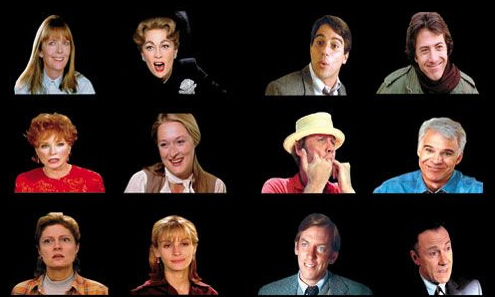Susan Sarandon is worried about her love life. She feels frigid when she is with her husband, they hardly ever have sex, and when they do she is overwhelmed by a sense of nothingness afterwards. Meryl Streep knows exactly how she feels, but counsels perseverance. “It’s no good feeling sorry for yourself”. Julia Roberts finds it very sad. A tear trickles slowly down her cheek as she reflects on the whole sorry mess. Shirley Maclaine does not know where to look and simply trembles, but in an odd and disjointed way, like a woman suffering from a nervous tic. To break the silence, Faye Dunaway chips in, in a not altogether helpful fashion, with a rhetorical question: “How sad is that?” She repeats the phrase several times, like a stuck record. Diane Keaton, for her part, starts worrying about whether or not she has been a good mother.
Within moments, the conversation has degenerated into little more than screams, sobs and guttural exhalations of frustration and rage. The noises the women make has to be heard to be believed. At first, they sound like animals. But gradually their shrieks and groans synchronise into a sound resembling the rhythmic detonation of drumbeats – a kind of syncopated agony. Shirley Maclaine sees the funny side of this. She starts shrugging her shoulders in time to the rhythm, and even breaks out into song. The communal crying turns to laughter, eventually, but it is an unpleasantly manic and enervated form of laughter. The five women are isolated in a room, behind closed curtains. None leaves. They seem trapped by their predicament, like the characters in a play by Samuel Beckett.
This month’s star attraction at the White Cube Gallery in East London, Mother + Father, is a work of art in the...

Candice Breitz at White Cube 2005
11-09-2005

